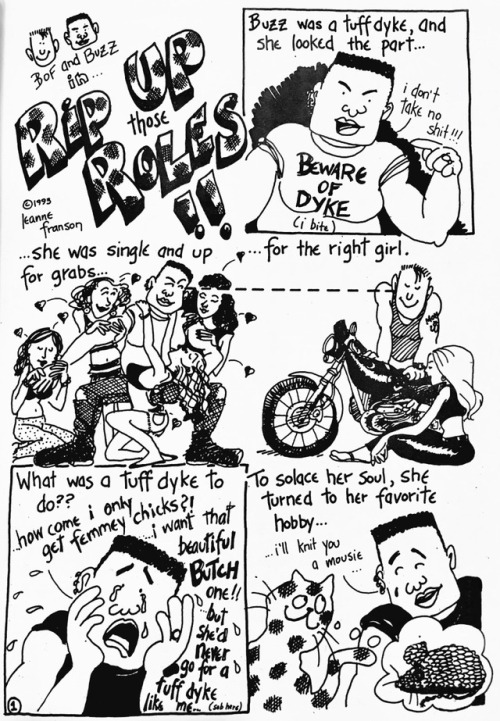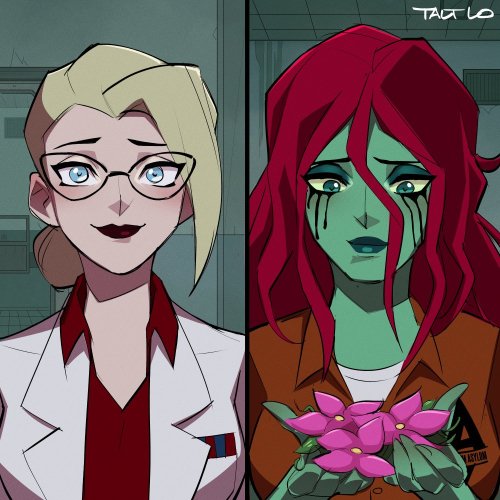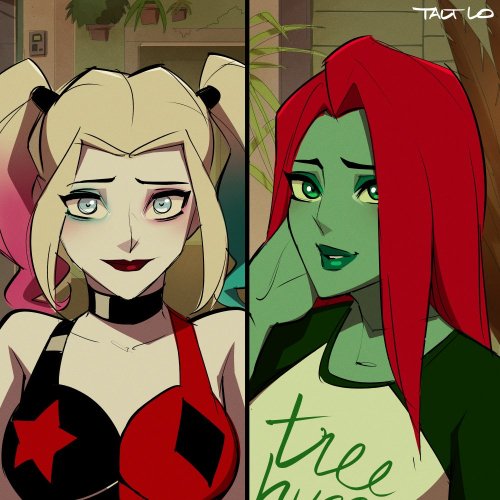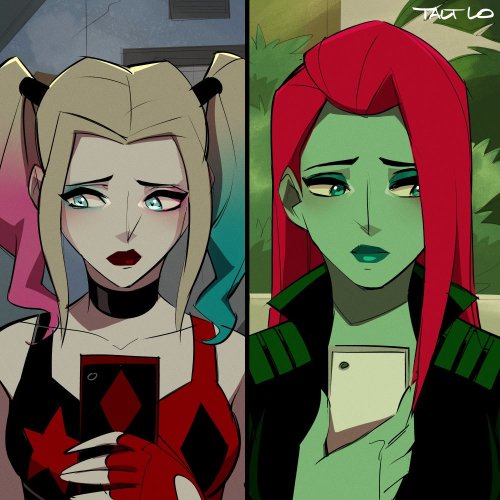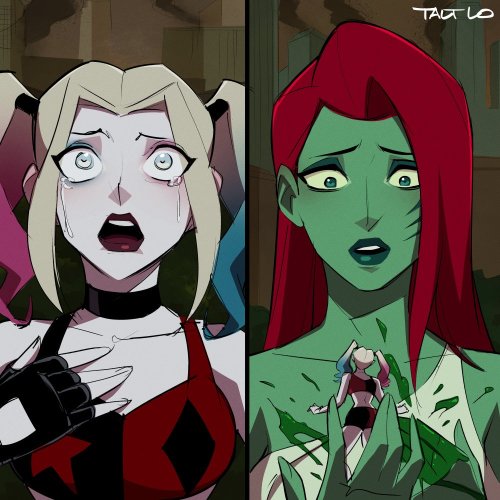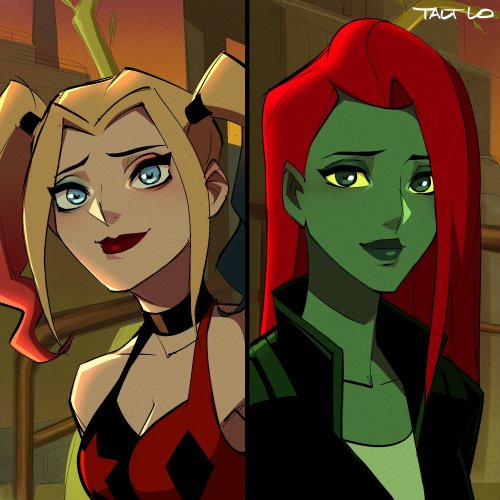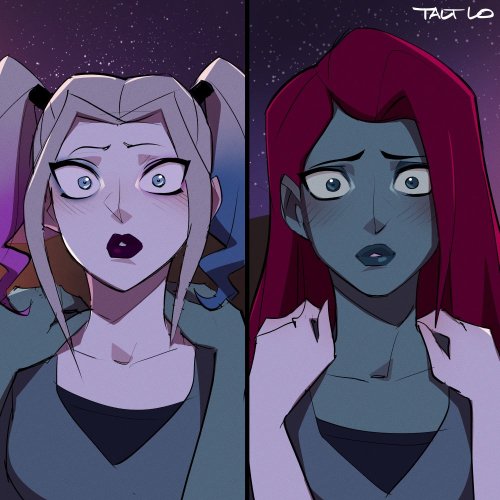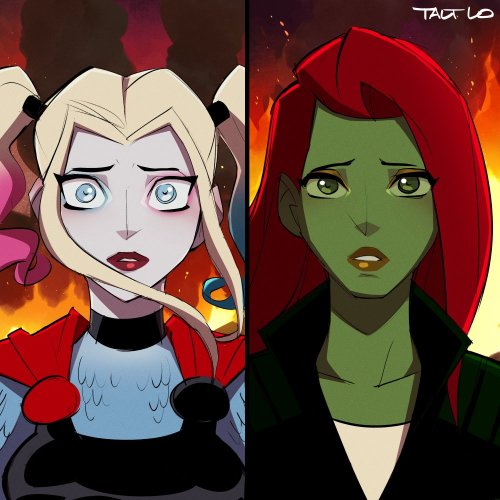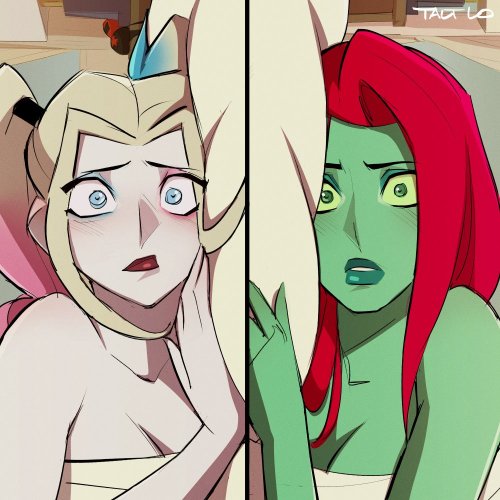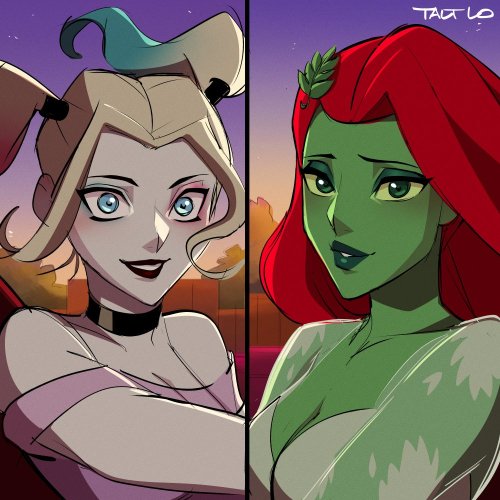Them ✨

Them ✨
More Posts from Emilerry and Others

More often than not I’ll crack into a sprawling fantasy series and, while I appreciate the luscious descriptions of furniture, landscapes, and clothing, all I’m focused on is that I don’t actually know how this world works. I only know what it looks like.
Including some functionality to your universe can add to immersion and give your reader a strong foundation on which to build their mental model of your universe.
You certainly don’t need to use all of these questions! In fact, I recommend against that, as all of these certainly won’t make it into your final draft. I personally find that starting my worldbuilding off with 5 to 10 functional questions helps pave the way for glittery and elaborate aesthetic development later on.

How is the healthcare funded in your world?
How does healthcare functionally differ between the wealthy and the poor? (i.e. can only the wealthy go to hospitals? do poor families often have to rely on back-alley procedures?)
Where are health centers (i.e. hospitals, small clinics, etc.) organized in your cities?
Does it differ in smaller towns?
How does this affect people’s ability to get healthcare?
Is healthcare magical, and if it is, how does that affect the healthcare system?
If healing is instantaneous, how does that affect people’s views on injury, illness, and chronic ailments?
If you have both magical and physical healthcare, which one is deemed superior and how does that affect society?
What illnesses are common in your world?
How does this affect daily life?
What do the people in your world think illnesses are?
Is it a miasma theory?
Humor theory?
Demons?
Do they know about biological viruses and bacteria?
How does this affect healthcare?

How do people get water?
Is the water sanitary and if not, how do they sanitize it?
How does agriculture work?
Is it large corporations or individual farms?
What sort of agricultural technology exists in your world and how does it affect food production?
Are farmers wealthy or poor?
What sort of natural resources does your world/country(ies) have and how are they obtained?
How does this affect the average wealth of the country?
How does this wealth affect the culture?
What livestock or beasts of burden are most valued? Least valued? Why?
What is considered a luxury good vs. a regular good?

What forms of transportation does your world have?
What classes use what forms of transportation?
How far has the average citizen traveled, given your transportation limitations?
Which cities are the most accessible and which are the least? Why?
How do popular transportation methods change how cities/towns are laid out?
Does your world have public transportation? What is it?
Is there a coming-of-age aspect to travel?
Describe your world’s postal system or whatever equivalent there is.
Who pays for it?
How reliable is it?
Are there emergency methods for transporting information?

How does your world keep time (i.e. watches, sundials, water clock, etc.)?
Does your world have a currency system, barter system, or something else?
If you have multiple countries, do different currencies have different values across said countries?
How does this affect travel?
Do you have banks in your world and if so, how are they run?
Who owns the banks? Government? Wealthy? How does this affect the economy and/or class system?
How does credit operate in your universe?
Does your world operate more on big corporations or small business? Something in between?
How are workers/labourers treated in your world?
Are there workers unions and if so, what are common views on unions?
Describe your tax system. If you don’t have a tax system, explain why and how your world is affected by that.
Can certain social classes not own property, certain livestock, certain businesses, etc.? Why?
How are business records kept? Are business records kept?
If your world has technology, does your world prioritize developing entertainment tech, communications tech, transportation tech or something else entirely?
What does this say about your world?
How does this affect your economy?

To the closest approximation, what type of government does your world have?
How are rulers/presidents/nobles put in place?
How much power does an individual ruler have?
Is there a veto process?
If you have multiple countries, do they have different types of rulers?
Describe any large-scale alliances (i.e. countries, factions, etc.) that are present in your world.
How did they come about and how are they maintained?
Are they strained or peaceful?
How does it affect the greater politics of your world?
Describe how wars are fought both internationally and nationally.
Do methods of war differ between countries/races?
What about philosophies about war?
If there is a military, what is its hierarchy structure?
How does the military recruit?
Is the military looked upon favourably in your society?
What weapons are used by each country/type of people during warfare, and how does that affect war strategies?
Describe the sentencing system of your world.
Is your accused innocent until proven guilty, or guilty until proven innocent?
How are lawbreakers punished?
If you have prisons, describe how they are organized and run, and who owns them.
Does differing ownership change how the prisons operate?
What are the major ways in which laws between countries vary?
Do laws between cities vary? If so, how and why?
How does citizenship work in your world? What rights and privileges do citizens have that others do not?
Can certain classes or races not become citizens?
Are there certain taboo subjects or opinions that artist/authors/musicians are not allowed to depict (i.e. portraying the official religion in a negative light, explicit sexual material, etc.)? What does this say about your society?
How do people get around these censorship laws?
What is the official hierarchy of duty in your world? (i.e. is family the most important, or patriotism? What about clan?)
How many languages are there in your world, and how many languages share a common origin?
How many people are multilingual?
Which language is the most common?
How is multilingualism viewed?
How are different languages viewed? (i.e. is one language ugly/barbaric while another is romantic and sensual?)
Feel free to add your own questions in reblogs or in comments!

day 6
Go Home and Go To Sleep.
this is how she wld stare at kanade when she wakes up for school and somehow knd is still up and fighting
drawing random images as niigo pt 1
(ps i found these images from a instagram reel but i have no idea how to put the link here without it redirecting to just instagram.com…….)

she did it again (and again and again and again)
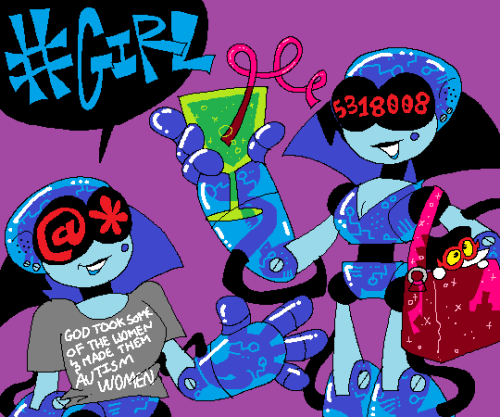
everybody in the WORLD
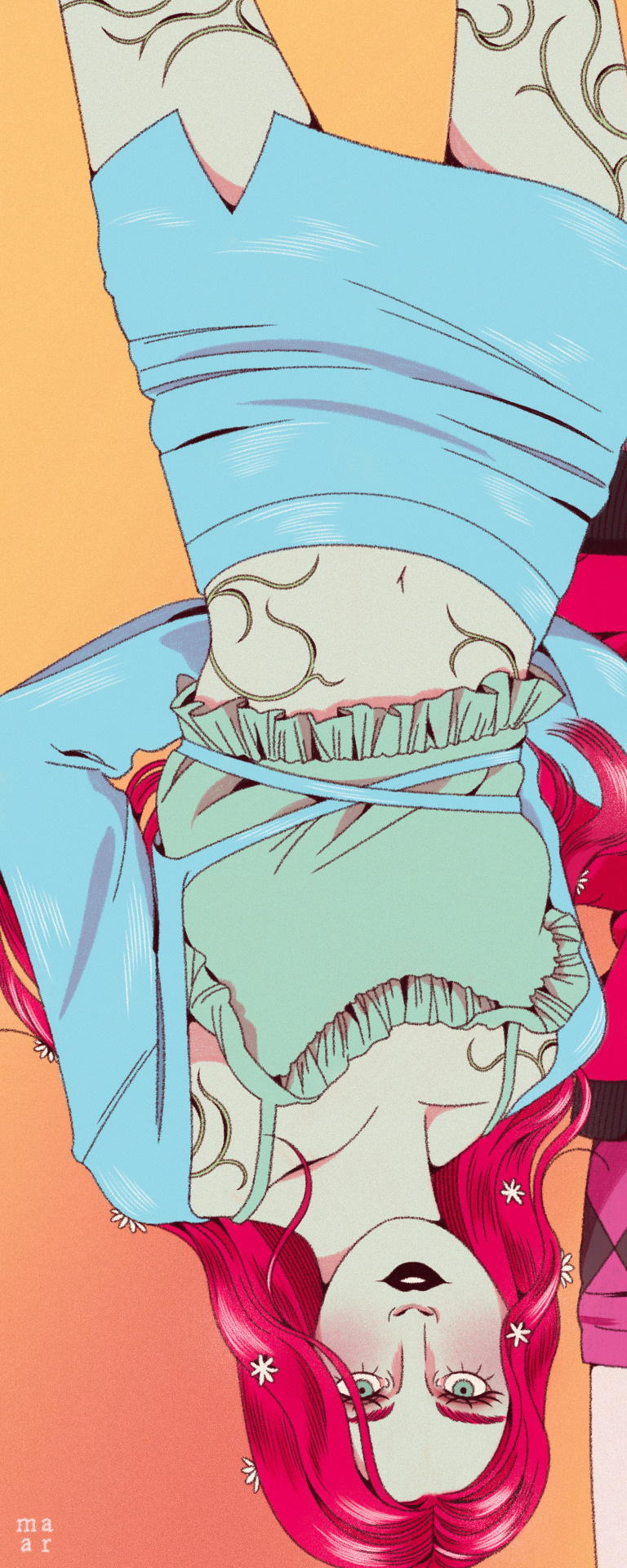
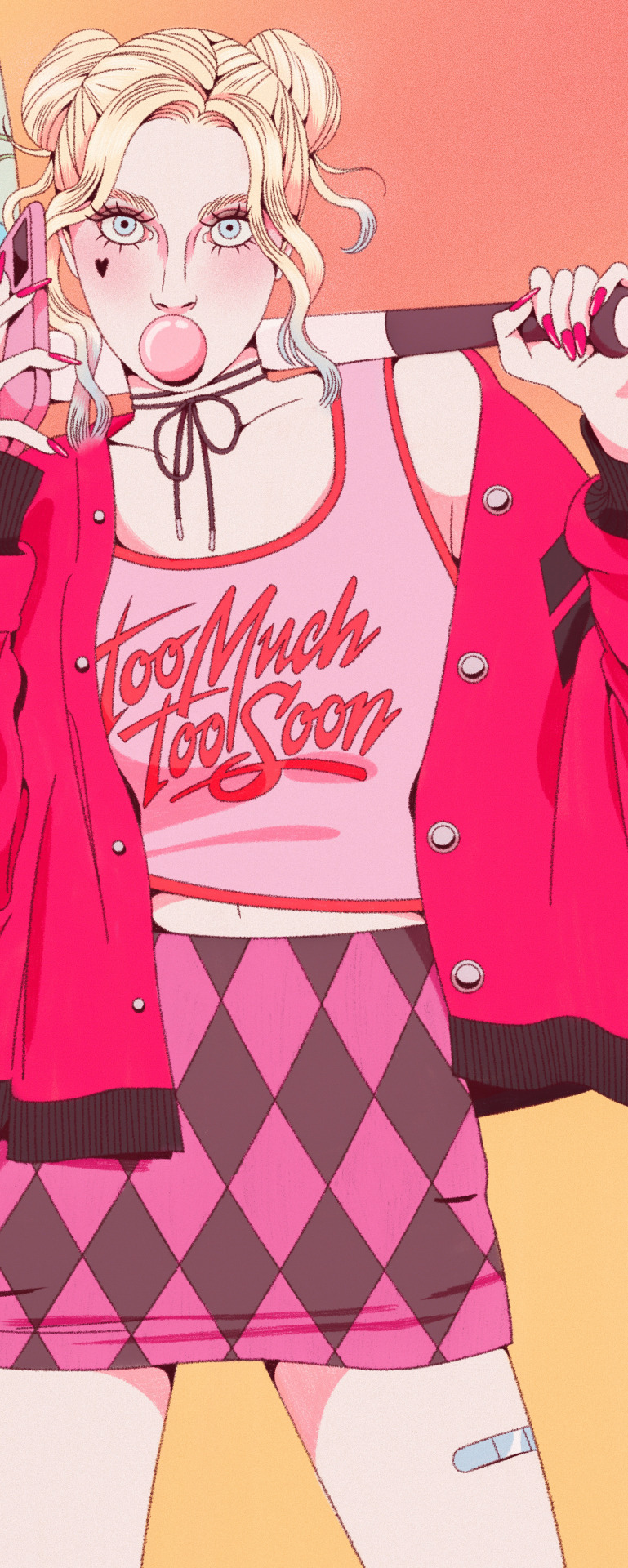
girls girls girls

bubbline in the peanuts artstyle
Trope Discussion: Blind Characters Covering Their Eyes
The majority of the projects I am asked to beta include blind characters who cover their eyes. Modern characters wear sunglasses. Other characters wear blindfolds for older settings. The story usually justifies the decision in some way, but I always ask: why?
I also neglected to include this in my post on Things I Want to See More of / Less of in Blind Characters. I don’t think I considered it at the time. However, unlike my post on blind seers, I think this trope actually causes some harm in subtle ways and I usually encourage avoiding it. I’ll discuss why in this post.
What’s Wrong With Blind Characters Covering Their Eyes?
Keep in mind that blind characters are not so common. Because they aren’t very common and because not everyone in your audience knows a blind person in real life, the way the character is represented could lead audiences to believe that is how blind people are. This, coupled with a general lack of information given in everyday life, allows writers or artists to unintentionally influence how real life blind people are perceived.
Sure, blind people create blind characters as well. However, we don’t usually get as much exposure or opportunities. We could be held back by other barriers, such as poverty. This means it can be hard to counteract tropes we don’t like or that activity harm us.
Blind characters covering their eyes is potentially harmful for a few reasons.
One reason is that it is assumed that all blind people always cover their eyes. This means that in real life, blind people are not as easily recognized even when they have a cane. The white cane is supposed to be what alerts others that a person is blind. Instead, people get confused about why a blind person isn’t wearing sunglasses if they’re blind. This leads to unnecessary explanations, lost time, refusal to help, and sometimes hostility. Wearing sunglasses helps some blind people communicate blindness more easily. They may feel forced to adopt the stereotype.
Another reason is that it unknowingly touches on the pressure some blind people face to cover their eyes. This could be because they are self-conscious about them or because of pressure to make other people feel more comfortable. This pressure could originate from the way their eyes look or move, or even due to lack of eye contact. Sometimes, stories present these ideas as normal for blind people, which increases the idea that blind people should be ashamed of their eyes or that they should prioritize the comfort of others for something superficial.
Where Did the Stereotype Come From?
While I am not sure about the exact origins, the stereotype probably comes from a few sources: shorthand symbolism and abled actors playing blind characters.
-Shorthand symbolism could be used in art or plays to indicate a character’s blindness.
-Because films and shows are so popular and more easily consumed, audiences are more often exposed to blind people on the screen. Actors who aren’t blind often wear sunglasses to make them appear blind to audiences who would perceive eye movements as breaking character. The actors in live-action material often wear sunglasses to hide their eyes. Why blind actors aren’t hired initially is another story.
This page discusses the sunglasses trope in films.
-Some blind people who wear sunglasses for any reason may also simply be more recognizable as a blind person as opposed to blind people who don’t wear sunglasses. This means others may not be aware that blind who don’t wear dark sunglasses exist.
The Sunglasses Stereotype
I should mention here that blind people are simultaneously expected to wear sunglasses as a signifier of blindness while also accused of faking for wearing them. The rationale is the idea that blind people can’t see the sun and therefore would never need sunglasses. This, of course, depends on the stereotypes that all blind people are totally blind, which is not true. Most sources I have found over my time writing this blog state that less than 10 to 15% of blind people are totally blind, which means about 85 to 90% of blind people have light perception or some residual vision.
When Should Our Characters Wear Sunglasses or a Blindfold?
Many writers have characters cover their eyes because it feels right. Some assume the character would feel uncomfortable with the way their eyes look and that they prefer to hide them. In order to write this trope well, you must understand your reason behind it.
Let’s examine why blind people wear sunglasses in real life. This page is a good one to read and was very helpful in constructing this post.
Light sensitivity, or photophobia, occurs when people have sensitivity to light, usually sunlight. Blind people can also expirience this.
Sunglasses are used to shield their eyes from the sun when outdoors and from big windows when indoors. Some sources state synthetic lighting is not usually an issue and others state some people may want to wear their sunglasses indoors.
For characters who aren’t modern, the equivalent of sunglasses would probably be a blindfold or eye patch.
Blind people like fashion just as the next person. They might enjoy wearing sunglasses occasionally. However, they don’t wear them all the time.
Blind people might also want to protect their eyes from dust or injury, whether they can see or not. This can be accomplished with sunglasses or regular glasses.
How Do We Write Blind Characters Covering Their Eyes Respectfully?
This is one of those tropes I prefer people avoid. I say “avoid” because I want to come across it less which means way less people need to use it.
Think about why you want your blind character to cover their eyes.
Is it because it simply feels right to you? Is it because you believe it will help audiences understand or accept that your character is blind? Is it because you can’t imagine your character any other way? Is it because your feel deep down that your character’s eyes would make other characters uncomfortable?
Think about where this idea comes from and whether you really want to use it.
If you have decided it makes sense for your character to cover their eyes, here are some tips for you to do it well.
1. If they use sunglasses for fashion, have the blind character go without the accessory periodically throughout the story. Consider avoiding them covering their eyes when they are first introduced, as first impressions can be memorable. Your blind character should not be the only one who happens to wear sunglasses as part of their style.
2. If they are sensitive to light, do research on photophobia. Consider where the character is when covering their eyes. Do they mostly wear sunglasses outside and near big windows? Do screens bother them? Make it clear in the story.
3. I always suggest having more than one blind character in a story. This is important for moments such as this. Having a blind character who doesn’t cover their eyes shows that not all blind people cover their eyes. This, in addition to a writer understanding exactly why their character covers their eyes, will help immensely.
This trope is a problem when no reference to the alternative is made, usually because the writer doesn’t understand what they’re writing about. They haven’t considered the reasons blind people cover their eyes and therefore aren’t aware that not all blind people do so. Having more than one blind character in the story shows more than one experience, including covering or not covering eyes. Showing different experiences eliminates the idea that blind people “just do” certain things. It makes people think.
If you want audiences to think, you first need to ask: why?
When writing marginalized characters, remember that their marginalization decreases the amount of accurate information available about them. Audiences don’t have as many resources to check. They may even lack the inclination to do so at all. This could be because of a desire to maintain biases or simply because they don’t consider blind people much outside of entertainment or pity. Surprisingly, some people are even actively resistant or hostile to the idea of taking time to learn about the experiences of blind people.
This means your story could be more impactful than you realize.
When you’re writing, ask yourself the question: why? You might realize that it makes for a richer, more informed story.
-
 matchaenanan liked this · 1 week ago
matchaenanan liked this · 1 week ago -
 jyuules reblogged this · 2 weeks ago
jyuules reblogged this · 2 weeks ago -
 zealousdevoteetalesreader liked this · 2 weeks ago
zealousdevoteetalesreader liked this · 2 weeks ago -
 next-doom liked this · 2 weeks ago
next-doom liked this · 2 weeks ago -
 ppiss liked this · 3 weeks ago
ppiss liked this · 3 weeks ago -
 the-name-is-jason liked this · 3 weeks ago
the-name-is-jason liked this · 3 weeks ago -
 iceenswary-blog liked this · 3 weeks ago
iceenswary-blog liked this · 3 weeks ago -
 whether-to-screech liked this · 1 month ago
whether-to-screech liked this · 1 month ago -
 wrwrdu liked this · 1 month ago
wrwrdu liked this · 1 month ago -
 space-jaam liked this · 1 month ago
space-jaam liked this · 1 month ago -
 impossibleneckweaselflower liked this · 2 months ago
impossibleneckweaselflower liked this · 2 months ago -
 altafanlolo liked this · 2 months ago
altafanlolo liked this · 2 months ago -
 sodarling liked this · 2 months ago
sodarling liked this · 2 months ago -
 regle-side2 liked this · 2 months ago
regle-side2 liked this · 2 months ago -
 crystaflowerz liked this · 2 months ago
crystaflowerz liked this · 2 months ago -
 frogseasons liked this · 2 months ago
frogseasons liked this · 2 months ago -
 marzxvii liked this · 2 months ago
marzxvii liked this · 2 months ago -
 tainolearner liked this · 2 months ago
tainolearner liked this · 2 months ago -
 momotantan liked this · 2 months ago
momotantan liked this · 2 months ago -
 ut56ka45f liked this · 2 months ago
ut56ka45f liked this · 2 months ago -
 kiirosann liked this · 2 months ago
kiirosann liked this · 2 months ago -
 akirayuri liked this · 3 months ago
akirayuri liked this · 3 months ago -
 hey-dont-touch-that liked this · 3 months ago
hey-dont-touch-that liked this · 3 months ago -
 dreamsphoenix liked this · 3 months ago
dreamsphoenix liked this · 3 months ago -
 idk-tbh-im-just-here liked this · 3 months ago
idk-tbh-im-just-here liked this · 3 months ago -
 eveoftheleaf liked this · 3 months ago
eveoftheleaf liked this · 3 months ago -
 pierrottear liked this · 3 months ago
pierrottear liked this · 3 months ago -
 kakashiskunai25 liked this · 3 months ago
kakashiskunai25 liked this · 3 months ago -
 beerusherwani14 liked this · 4 months ago
beerusherwani14 liked this · 4 months ago -
 artyoma liked this · 4 months ago
artyoma liked this · 4 months ago -
 forestgreenforlife liked this · 4 months ago
forestgreenforlife liked this · 4 months ago -
 scifellgoddess reblogged this · 4 months ago
scifellgoddess reblogged this · 4 months ago -
 scifellgoddess liked this · 4 months ago
scifellgoddess liked this · 4 months ago -
 astromysticstardust liked this · 4 months ago
astromysticstardust liked this · 4 months ago -
 am-0000n liked this · 4 months ago
am-0000n liked this · 4 months ago -
 rainingcloudz reblogged this · 4 months ago
rainingcloudz reblogged this · 4 months ago -
 rainingcloudz liked this · 4 months ago
rainingcloudz liked this · 4 months ago -
 vannia-ir liked this · 4 months ago
vannia-ir liked this · 4 months ago -
 sobsen4 liked this · 5 months ago
sobsen4 liked this · 5 months ago -
 milki1379 liked this · 5 months ago
milki1379 liked this · 5 months ago -
 trickster-showe liked this · 5 months ago
trickster-showe liked this · 5 months ago -
 aannxsie liked this · 5 months ago
aannxsie liked this · 5 months ago -
 oiothi liked this · 6 months ago
oiothi liked this · 6 months ago -
 biznix liked this · 6 months ago
biznix liked this · 6 months ago -
 pyinn liked this · 6 months ago
pyinn liked this · 6 months ago -
 stardustkuchiki liked this · 6 months ago
stardustkuchiki liked this · 6 months ago -
 personaquerebloguearacosas reblogged this · 7 months ago
personaquerebloguearacosas reblogged this · 7 months ago
